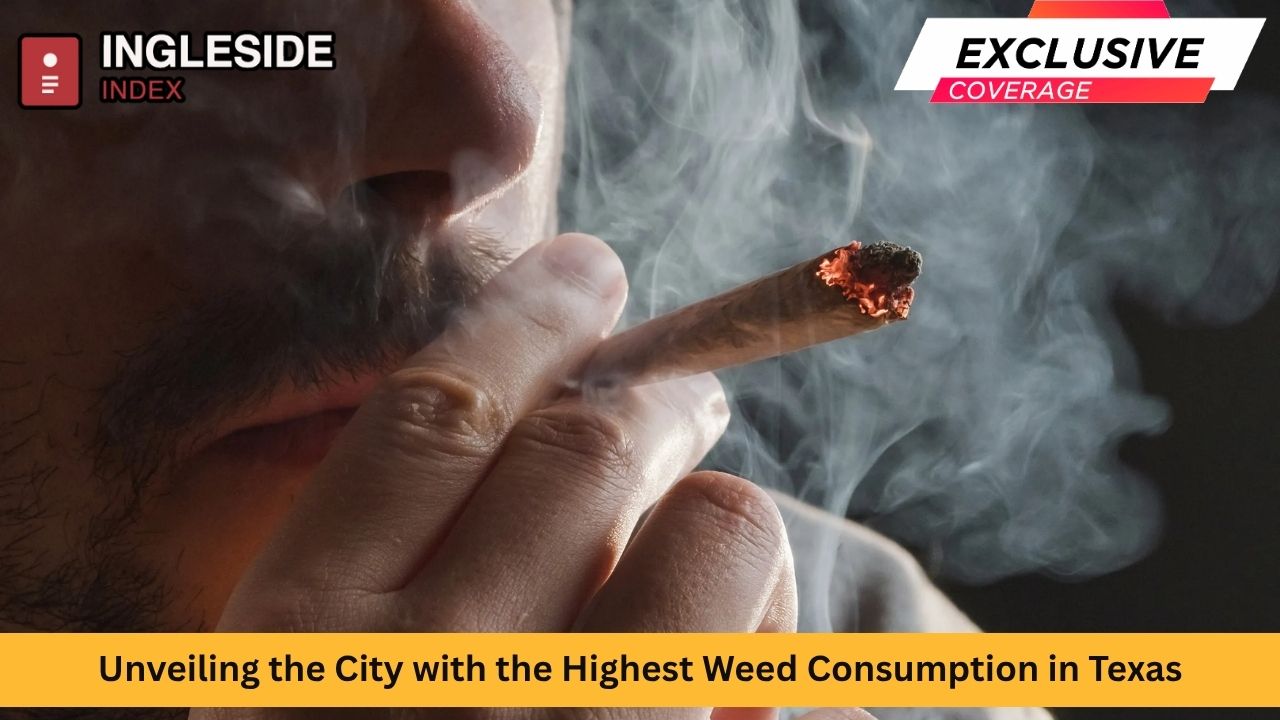The conversation about cannabis in Texas is vibrant and evolving, filled with passionate debates over legality, medicinal use, cultural perceptions, and economic ramifications. Although recreational marijuana remains illegal across the state, some Texas cities have developed distinct reputations as hotbeds for cannabis consumption. When discussing weed usage in the Lone Star State, one city rises above the rest in terms of sheer volume and social impact. This article journeys through Texas’s cannabis landscape—exploring the data, culture, law, and future, ultimately unveiling the city with the highest weed consumption.
The Legal Landscape of Cannabis in Texas
Texas law has remained firmly against recreational marijuana use for decades. All adult use of cannabis is illegal, with even minor possession punishable by jail sentences and heavy fines. Medical marijuana is only available in a restrictive form—low-THC cannabis oil, with qualifying conditions such as epilepsy, autism, multiple sclerosis, and a few severe disorders. Texans caught possessing small amounts of marijuana often face criminal records that can affect jobs, housing, and education.
Despite these strict laws at the state level, several Texas cities have taken steps to decriminalize small quantities of cannabis. Places like Austin, Dallas, and El Paso have passed local measures directing police not to arrest or aggressively pursue minor possession, especially since the passing of various local resolutions and ballot measures. However, these reforms do not equate to legalization and can shift under political pressure.
Cannabis Trends across Texas Cities
The shift in attitudes is tangible. A recent poll showed that a majority of Texans now support legalizing marijuana for adult use, a significant rise over the past decade. The support bridges political parties and generational divides, signaling a changing tide in public opinion even in this traditionally conservative state.
Cities like Austin have become synonymous with alternative culture, music, and progressive politics, which tend to correlate with higher cannabis consumption. Similarly, San Antonio and Dallas have adopted more relaxed policies and have burgeoning communities that advocate for greater cannabis acceptance.
Despite these trends, the state’s largest cities each have their unique relationships with the plant, affected by demographics, law enforcement attitudes, tourism, and subcultures. The dynamics within Houston, Dallas, Austin, San Antonio, and El Paso form a tapestry that tells the story of weed in Texas.
Texans and Their Cannabis Habits: Facts and Figures
Before diving into which city tops the charts, it’s crucial to lay out broader statistics that highlight marijuana’s prevalence in Texas.
-
About 15% of the state population reports using marijuana within the past year, translating to over 3.5 million people in Texas.
-
Among college students in Texas, over one-third admit to using marijuana at some point.
-
The average age of first use is around 17 years old.
-
In the 18-25 age group, usage rates are notably higher than among older residents.
-
Only a fraction of Texans who could benefit from substance use treatment actually receive it, with accessibility and stigma being persisting issues.
A notable aspect of the Texas cannabis scene is the rapid growth in hemp and CBD products since 2019, which complicates law enforcement (as it is hard to distinguish hemp from marijuana on sight or smell alone), and further blurs public perceptions about the safety and legality of cannabis.
Surveying Major Texas Cities: Who Smokes the Most?
Let’s explore cannabis use from city to city, focusing on Texas’s urban powerhouses:
Austin
Austin, the capital of Texas, is powered by a thriving music scene, youthful college population, and a “Keep Austin Weird” mantra. It’s not surprising that marijuana consumption is culturally normalized. More than 36% of UT Austin students have reportedly used marijuana. The city decriminalized minor possession in 2020, effectively ending most arrests for less than 4 ounces for personal use. Austin’s recreational climate and high-profile festivals foster an open cannabis culture, making it an influential city for cannabis acceptance but not the highest in absolute consumption.
Dallas
Dallas has made strides toward weed reform, including a recent measure that decriminalized possession of up to four ounces, preventing most citations or arrests for simple possession. Dallas’s large and diverse population, nightlife, and growing youth culture make it an important cannabis market, but overall consumption volume still lags behind its southern neighbor.
San Antonio
San Antonio features notable marijuana usage, especially among its young adult population. The city’s relatively laid-back attitude and cultural diversity have fostered a thriving underground cannabis community. However, stringent state laws mean that most consumption remains discreet, reducing its national footprint despite its size.
El Paso
El Paso’s location on the border brings unique dynamics, with cross-border cultural exchange influencing attitudes and access. Despite liberalization at the local level, El Paso’s overall numbers for consumption are overshadowed by the larger metropolises to the east.
Houston: Texas’s Cannabis Consumption Capital
Stepping into Houston, the narrative changes dramatically. Known for its sprawling size, vast population, and robust nightlife, Houston has emerged as the unrivaled apex of weed consumption in Texas. But what factors contribute to this status, and what does the data say?
The Numbers Behind Houston’s Highs
-
Houston is the fourth highest weed-consuming city in the United States.
-
Globally, Houston places sixth among all cities for annual cannabis consumption.
-
Reports estimate more than 18 metric tons of cannabis are consumed in Houston each year. This puts it ahead of global cities like Toronto and Prague.
-
On a per capita basis, annual weed consumption averages 8.8 grams for every resident in the city.
-
Despite a lack of full legalization, Houston’s overall consumption rivals or exceeds several cities in states where marijuana is legal.
Social and Demographic Drivers
Houston’s thriving cannabis culture is rooted in its diversity. The city is a mosaic of cultures, with large populations from Latin America, the Caribbean, Africa, Asia, and beyond, each bringing distinct attitudes toward cannabis usage. This melting pot creates a dynamic market for cannabis, driven by music, food, subcultures, and nightlife.
Being Texas’s largest city in both land area and population, Houston supports massive clandestine markets. Its patchwork of neighborhoods, from Montrose’s artistic spirit to the urban energy of Midtown, fosters micro-communities where cannabis is part of daily life or coded rituals.
Houston’s Cannabis Economy and Enforcement
While the city’s appetite for marijuana is massive, it exists in a precarious balance. Recreational cannabis remains illegal, and though enforcement has softened in recent years, the risk of criminal consequences persists. Houston’s law enforcement agencies have periodically adjusted their focus, with some periods emphasizing “cite and release” policies for small amounts.
Meanwhile, the explosion of legal hemp shops and CBD dispensaries adds to the complexity. Many Houstonians consume THC products legally through loopholes around hemp and synthetics, further increasing the city’s consumption without technically breaking state marijuana statutes.
Comparing Houston to Texas’s Other Major Metropolises
| City | Estimated Annual Consumption (Metric Tons) | Per Capita per Year (grams) | Local Policies | Pop. (Approx.) |
|---|---|---|---|---|
| Houston | 18+ | 8.8 | Cite & release, not legal | 2.3 million |
| Dallas | ~13 | ~6.1 | Decriminalized up to 4 oz | 1.3 million |
| Austin | <8 | ~7 | Decriminalized up to 4 oz | 1 million |
| San Antonio | ~7 | ~4 | Some cite & release measures | 1.5 million |
| El Paso | ~3 | ~2.7 | Mixed enforcement, cite & release in place | 700,000 |
Stats compiled from recent cannabis consumption studies, city policy reports, and population data.
Houston’s dominance in the numbers is clear—both in absolute scale and per capita usage. Unlike Austin, where culture and advocacy outpace actual volume, Houston’s sheer size, diversity, and urban complexity drive its position as Texas’s cannabis consumption capital.
Cultural Significance and Perception in Houston
Houston’s cannabis story isn’t just about the numbers. The city’s weed scene is shaped by several intersecting factors:
-
Music and Nightlife: Houston’s world-famous hip-hop scene, underground clubs, and art movements all have roots interwoven with cannabis culture.
-
Diversity: Immigrant communities bring different traditions and acceptances, some viewing marijuana as a routine or ritual.
-
College Life: With major universities like the University of Houston and Rice University, youth culture exerts significant influence on consumption patterns.
-
Events and Celebrations: Festivals, art shows, and alternative spaces act as catalysts for visible and underground cannabis use.
Over time, advocates in Houston have fostered a push for reform, hosting awareness events and pressuring city leaders to adopt lighter enforcement. Yet, these changes occur against a backdrop of continued state prohibition.
The Economic Ripple: Houston’s Unseen Cannabis Market
Although not legal, Houston’s cannabis “shadow” market is estimated to generate tens of millions annually. Economic benefits elsewhere in the U.S.—like tax revenue and job creation—add weight to advocates’ calls for legalization.
Meanwhile, the legal hemp and CBD market is exploding. Houston now has hundreds of dispensaries and retailers selling THC-adjacent products, delivery services, and even vending machines that distribute consumables. This overlap confuses the public but further proliferates cannabis-derived product usage in the city.
Social Impact: Justice, Disparity, and Equity
One of the most profound issues surrounding cannabis in Houston (and broader Texas) is the intersection with criminal justice. Historically, weed laws have disproportionately affected communities of color, resulting in higher arrest rates and harsher penalties in marginalized areas. Local reforms now seek to reduce these disparities, but systemic issues persist, especially for those with previous convictions.
Advocacy groups continue to highlight these disparities and fight for restorative justice measures. Some draw inspiration from cities in legal states, where expungement and equity licensing are designed to repair past harms.
Public Health, Youth, and Trends
Public opinion polls show that support for legalization continues to climb, especially among young adults. However, health officials remain concerned about addiction rates and mental health outcomes. Recent data reveal that one out of every seven Texans has used cannabis in the past year—highlighting the widespread reach of the plant but also the challenge of providing adequate treatment for dependency.
In Houston’s sprawling high school and college environments, education campaigns aim to balance acknowledgment of recreational use with messages about moderation and risk.
Looking Forward: Texas’s Cannabis Future
Will Houston’s crown ever be threatened? Much depends on statewide policy changes. Should Texas legalize recreational cannabis, the consumption numbers—already immense—are poised to rise even further, complemented by economic benefits observed in other states.
Houston, with its large and dynamic market, is perfectly positioned to lead Texas in cannabis industry innovation, equity conversations, and public health initiatives as reforms continue. The city’s trends often set the precedent for the rest of the state.
Local leaders, advocates, and lawmakers will shape whether Houston’s next chapter is defined by continued contrast—between rising consumption and strict laws—or by alignment and progressive change.
Conclusion
Houston is the undisputed center of cannabis consumption in Texas. Its vast population, cultural diversity, economic dynamism, and evolving social attitudes make it a microcosm of the state’s growing acceptance of marijuana—even as the legal fight continues. As the Lone Star State moves forward, Houston’s experience offers a vision of what a more open, equitable, and economically vibrant cannabis future might look like for all of Texas.
Whether you’re watching new legislation unfold or simply observing the shifting cultural tides, keep an eye on Houston—the city that’s redefining the boundaries of cannabis consumption deep in the heart of Texas.




